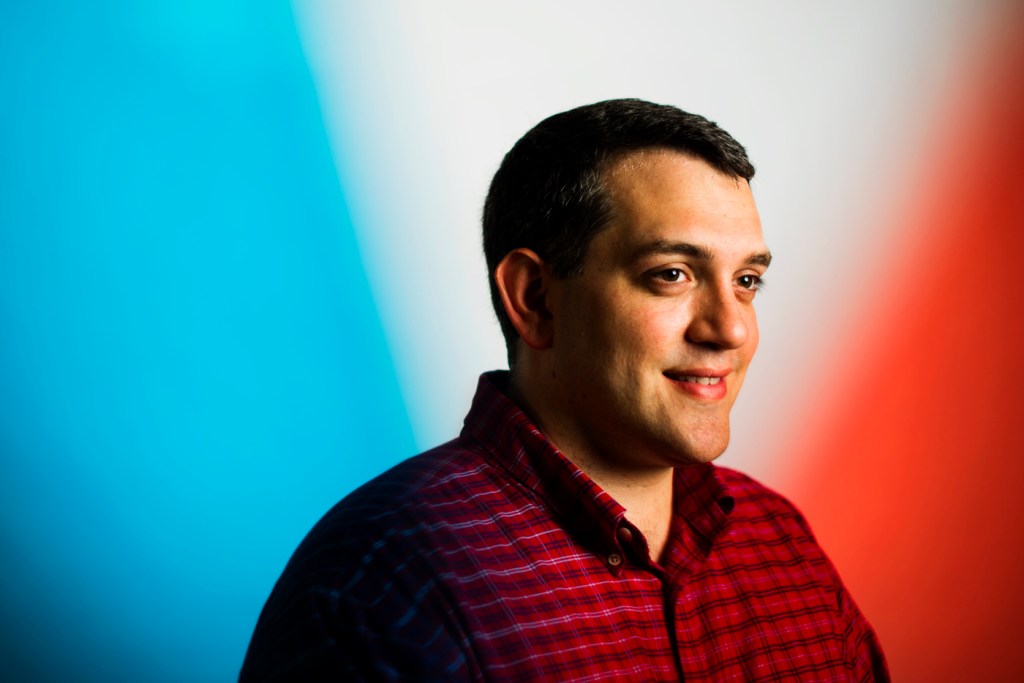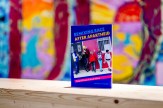Meet the graduates: Zach Heath

Zach Heath, L’17, is one of more than 200 students who will receive degrees at the School of Law’s graduation ceremony on Friday at Matthews Arena. Here, he explains how his co-op experiences have prepared him for his future at one of the nation’s premier law firms.
You earned your bachelor’s degree in classical languages and your master’s degree in education. What compelled you to study law at Northeastern?
I chose Northeastern for the co-op program. With very little background in the law, I thought having four co-ops—and four bites at the apple, so to speak—would give me the best chance of finding what I wanted to do after graduation.
Speaking of life after Northeastern, what are your post-graduation plans?
I’ll be studying for the bar exam this summer and then starting my legal career as a first-year associate at Choate, Hall, & Stewart, a Boston-based law firm where I completed my third and final co-op. While I have yet to receive my official assignment, I hope to be placed into the firm’s corporate law group, where I’d focus on the transactional side of law, involving technology companies, private equity, venture capital, and finance deals.
My plan is to jump into my new role with both feet, come up for air sometime in the next three to five years, and then reevaluate my long-term career options. Before enrolling in law school, I was part of the Teach for America program, through which I served as a second-grade teacher at the Elm City College Preparatory Elementary School in New Haven, Connecticut. Through my time in the program I developed a passion for education, which I carried with me to Northeastern. During law school I was able to work in the classroom through the Higg-Lew Leaders program, an afterschool program run by Northeastern law students for seventh- and eighth-graders at the Higginson/Lewis School in Boston’s Roxbury neighborhood.
Your real-world work experiences run deep, from serving as an in-house counsel intern for Staples and Eversource Energy to working as a policy and legal research intern for Farm Aid, where you studied the impact of U.S. immigration policy on labor, agriculture, and immigrant farm workers. How have these experiences prepared you for the next phase of your professional journey?
I worked as a judicial intern for Judge Kenneth J. Fishman on my first co-op, where I was exposed to both civil and criminal proceedings. I quickly realized that I did not want to be litigating court cases, but I became very interested in the contracts behind some of the business disputes I was observing. At Eversource, I got an inside look at various components of securities law and business regulation. My summer at Choate allowed me to explore corporate, litigation, and wealth management assignments, exposing me to a wide range of interesting legal issues. Lastly, at Staples, I experienced first-hand how an in-house legal department can play a significant role in a publicly-traded company. All these experiences afforded me real-life opportunities to refine my legal skills while preparing me to take on the post-grad legal world.
You were active in the School of Law, serving as a teaching assistant, a student ambassador, and a lawyering fellow in the Legal Skills in Social Context program. How will you apply the leadership skills you honed in these positions to your work at Choate, Hall, & Stewart?
As a second-year lawyering fellow, I was able to channel my love for teaching, leading a group of first-year students as they worked with Greater Boston Legal Services on a yearlong social justice project. I enjoyed the program so much that I returned during my third year to do it all over again. As part of the program, it was imperative that I interacted with my peers, faculty, and parties outside of the university with the utmost of professionalism—skills that will certainly come in handy as an attorney. As a teaching assistant, you must present complex information in a digestible format—another skill that attorneys use all of the time. As a student ambassador, you must be a representative of the university—again, skills critical to the successful practice of law.
At Choate, I’ll be responsible for answering questions from clients and other interested parties, particularly as deals come together. The interpersonal skills I sharpened at Northeastern will be immediately—and directly—transferable.
What will you miss most about the Northeastern community?
What I’ll miss most is Northeastern’s true sense of community, especially within the School of Law. Everybody knows each other; everybody says “hello.” People cite the 1971 novel The Paper Chase, which focuses on the overwhelming nature of the first year of law school, as a good example of what you can expect. Fortunately, I can honestly say that wasn’t the case for me. My peers and my professors were always willing to help, and while law school has required an awful lot of hard work, I have enjoyed it all along the way.
What advice do you have for incoming law students?
It’s important to commit yourself to working as hard as you can throughout law school, particularly during the first year when the skills and concepts of thinking analytically are in their infancy. But working hard does not mean keeping your head down in the books exclusively—it means getting to know the faculty, seeking out extra help from your classmates, and talking through the law. Northeastern is a place where you’re invited to participate—in class, in the community, and in the social scene. Northeastern does a great job of getting students to engage on campus. Yes, knowing the law and reading your books is very important, but all that other stuff, like working with your faculty and your peers, can be a huge asset too. They have a wealth of knowledge, and tapping into that resource is absolutely critical.





